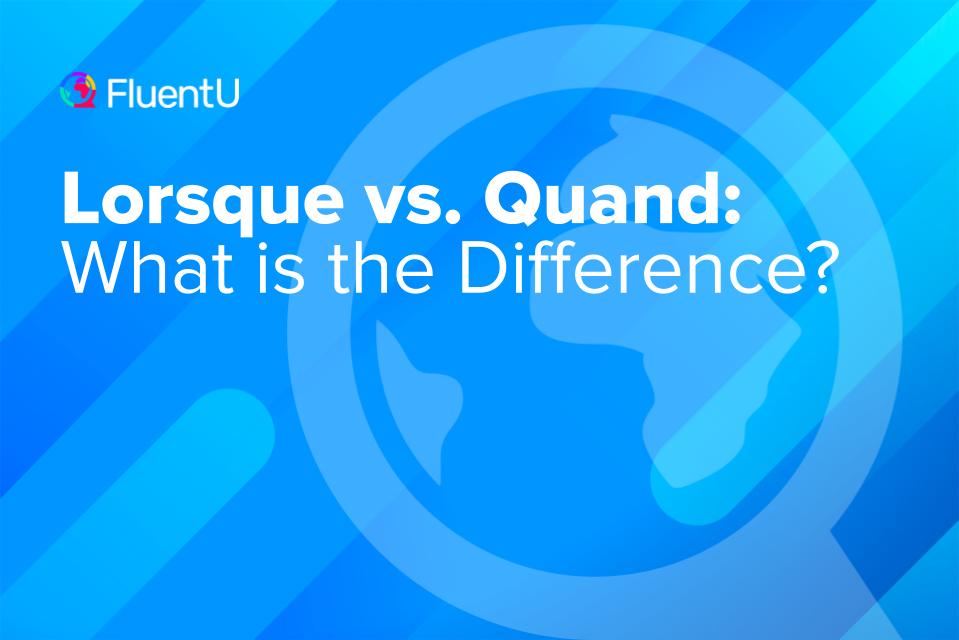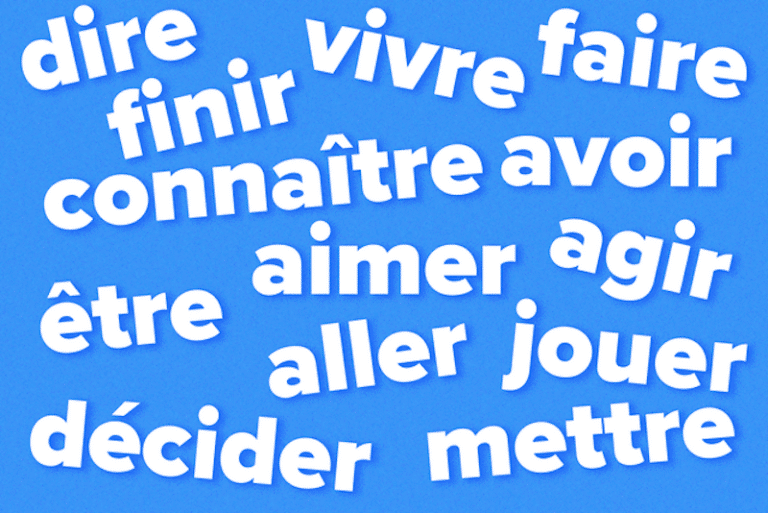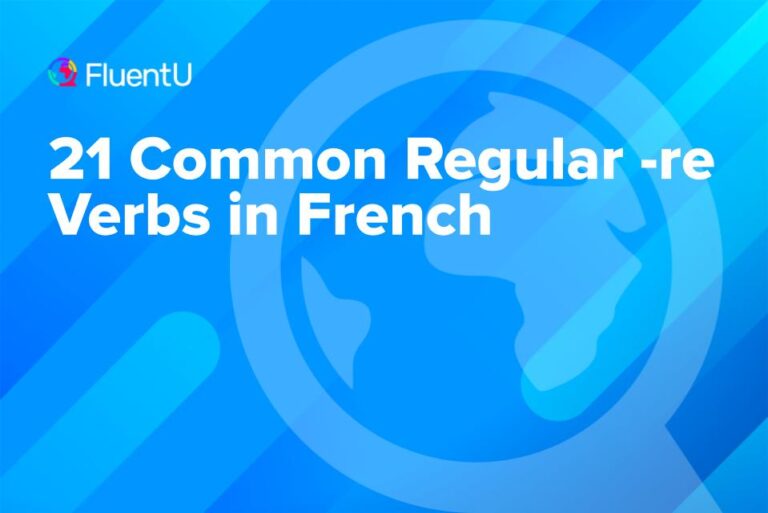Lorsque vs. Quand: What is the Difference?

A simple French expression that you will need to express time and time again is “when.” However, look that up in your dictionary and you might be surprised at the length of sub-entries explaining all the translation possibilities and usage requirements.
Two of the main translations of “when” are quand and lorsque , which take center stage in this post.
Download: This blog post is available as a convenient and portable PDF that you can take anywhere. Click here to get a copy. (Download)
The Uses of Quand
This is the most common word you will use for “when.” Here are three situations in which you will use quand:
As an interrogative word to form questions
Quand est-ce que vous avez rendez-vous ?
(When do you have an appointment?)
C’est quand la fin du monde ?
(When is the end of the world?)
To say when things happen
Je dormais quand il est arrivé.
(I was sleeping when he arrived.)
Dis-moi quand tu arriveras.
(Tell me when you arrive.)
For drawing contrasts
Pourquoi dormir quand la fête bat son plein ?
(Why sleep when the party is in full swing?)
In this third situation here, you may also hear alors que used instead.
The Uses of Lorsque
This word can sometimes sound a bit more formal and even stiff, although you will still hear it in conversation. I hear it often on (the excellent) RFI podcasts, when an expert is holding forth on an issue of philosophical or international importance.
Note that lorsque is not used like the first use of quand above, to ask questions about when something happens. But it does have some overlapping uses.
To say when things happen
Same as #2 for quand.
Je dormais lorsque le monsieur est arrivé.
(I was sleeping when the man arrived.)
Dites-moi lorsque vous arriverez.
(Tell me when you (formal) arrive.)
To draw contrasts
Same as #3 for quand.
On a raison de ne pas voter lorsqu’il faut une révolution.
(We are right to not vote when a revolution is needed.)
Note that many speakers prefer quand for the use above, particularly in spoken French.
For some, lorsque gives a sense of “at the moment when.”
However, the above is considered correct.
As you can also see in the above example, lorsque loses its final “e” when the following word starts with a vowel or a mute “h,” being replaced by an apostrophe. This is obligatory.
The Use of À Quelle Heure
À quelle heure is the equivalent of “at what time” and it’s used to ask questions. It’s common to use this phrase for talking about the time that something happens in French (whereas in English we would often just say “when”).
À quelle heure est le rendez-vous ?
(At what time/when is the meeting?)
À quelle heure on fait la fête ?
(At what time/when do we party?)
Remember that while quand can certainly refer to time, it can be better to use this more precise phrase when you want to ask about the actual time that something is happening.
Posing the question with just quand will sometimes get you the day but not the hour. French people are not purposely trying to frustrate you with this, they just tend to think of quand as referring more to the day that something happens rather than the time.
More Common Quand Variants
Quand même
This is very common and also rather tricky for French learners. Its meanings can be something like “even if,” “even though,” “all the same” or “even so.”
C’était bien, mais j’étais quand même fatigué.
(It was good, even though I was tired.)
C’était quand même bien.
(It was good even so.)
Il est venu quand même.
(He came anyway.) — Perhaps in spite of not being invited, for example.
It can also just be an intensifier.
C’est bon, tu peux quand même te taire.
(Okay, you can just shut up.)
Mais quand même !
(Oh god, enough already!/That’s shocking!)
N’importe quand
This literally translates to “not important when,” but often can be best translated as “anytime.”
Ça peut arriver n’importe quand.
(This can happen anytime/whenever.)
Incidentally, your other French question words can be combined with n’importe in the same way. So you can be just as carefree with what/who/where/etc.: n’importe quoi (anything), n’importe qui (anyone), n’importe où (anywhere), etc.
Practice: Talking about when things happen in French
At this point, you should have a pretty clear understanding of the main uses for quand, lorsque and their siblings, but all of that is worthless if you can’t correctly employ the words in context. In particular, it’s useful to practice the more nebulous uses, like quand même as an intensifier—you eventually have to hear and use it enough that you just get a feel for it.
Here are some ways you can practice the uses above. I’m assuming that you are already designing your own language lessons with a teacher or a language exchange partner; if you don’t have one, you should of course get one online! There are plenty of apps you can use to find one!
First of all, you can try out quand. This is an opportunity to practice not just forming questions, but also to use whatever tenses you have been recently working on. For example, if you have recently learned the past tense, you can transform the first example question above to ask your partner:
Quand est-ce que vous avez eu rendez-vous ? (When did you have an appointment?)
Then you can ask your partner other things about when things happened in the past, such as:
- déménager (moving)
- apprendre l’anglais (learning English)
- goûter un très bon vin (trying a very good wine)
These are simple examples, but it’s much better for retention if you can ask about things that you personally find interesting/compelling/funny. So if I were doing this exercise, I might replace good wine with cognac, huîtres (oysters) or untoward adventures because I’m more likely to truly care about the response, and thus take care to both form the question correctly and really understand and remember what is said.
Then, take the same things that you asked your partner about and talk about when they happened to you and what someone else was doing when they were going on (lorsque or quand are both fine here).
Finally, take another look at the examples of quand même. Try to follow the model sentences, while substituting real things from your own life to make new ones. If this one seems tricky, ask your language partner for examples of when they have recently used the phrase, and then try mimicking the phrase exactly while substituting a word or two to make it relevant for you. For example, if your partner says:
Je ne parle pas bien russe, mais je vais quand même essayer. (I don’t speak Russian well, but I’m going to try anyway.)
You might say:
Je ne parle pas bien français, mais je vais quand même essayer. (I don’t speak French well, but I’m going to try anyway.)
And don’t forget to be on the lookout for any of these words and phrases while you watch TV shows, read magazines or interact with any other native French content. The cool song “Papaoutai,” for example, has a beautiful lorsqu’ right in the third line! You may also want to try a language learning program like FluentU.
FluentU takes authentic videos—like music videos, movie trailers, news and inspiring talks—and turns them into personalized language learning lessons.
You can try FluentU for free for 2 weeks. Check out the website or download the iOS app or Android app.
P.S. Click here to take advantage of our current sale! (Expires at the end of this month.)
I hope that this gives you a great jumping-off point for discovering the uses of quand, lorsque and related words, as well as a pattern that you can use for practicing these and other types of words that have lots of uses and translations which don’t exactly match up to their English versions.
With any luck, your next trip to a dictionary entry that contains a few pages will be a little less dispiriting.
Download: This blog post is available as a convenient and portable PDF that you can take anywhere. Click here to get a copy. (Download)
And One More Thing...
If you like learning French at your own pace and from the comfort of your device, I have to tell you about FluentU.
FluentU makes it easier (and way more fun) to learn French by making real content like movies and series accessible to learners. You can check out FluentU's curated video library, or bring our learning tools directly to Netflix or YouTube with the FluentU Chrome extension.
One of the features I find most helpful is the interactive captions—you can tap on any word to see its meaning, an image, pronunciation, and other examples from different contexts. It’s a great way to pick up French vocab without having to pause and look things up separately.
FluentU also helps reinforce what you’ve learned with personalized quizzes. You can swipe through extra examples and complete engaging exercises that adapt to your progress. You'll get extra practice with the words you find more challenging and even be reminded you when it’s time to review!
You can use FluentU on your computer, tablet, or phone with our app for Apple or Android devices. Click here to take advantage of our current sale! (Expires at the end of this month.)











